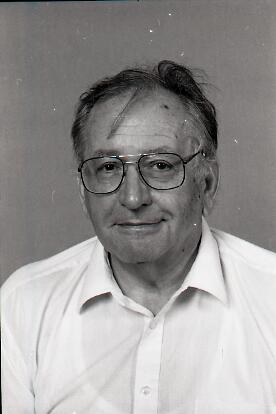
Zone du titre et de la mention de responsabilité
Titre propre
H. Bruno Schiefer - Portrait
Dénomination générale des documents
- Document graphique
Titre parallèle
Compléments du titre
Mentions de responsabilité du titre
Notes du titre
Niveau de description
Pièce
Cote
Zone de l'édition
Mention d'édition
Mentions de responsabilité relatives à l'édition
Zone des précisions relatives à la catégorie de documents
Mention d'échelle (cartographique)
Mention de projection (cartographique)
Mention des coordonnées (cartographiques)
Mention d'échelle (architecturale)
Juridiction responsable et dénomination (philatélique)
Zone des dates de production
Date(s)
-
1995 (Production)
Zone de description matérielle
Description matérielle
2 photographs : b&w ; 3.5 x 2.5 cm
2 negatives : b&w ; 3 x 2 cm
Zone de la collection
Titre propre de la collection
Titres parallèles de la collection
Compléments du titre de la collection
Mention de responsabilité relative à la collection
Numérotation à l'intérieur de la collection
Note sur la collection
Zone de la description archivistique
Nom du producteur
Historique de la conservation
Portée et contenu
Head and shoulders image of Dr. Bruno Schiefer, Western College of Veterinary Medicine.
Bio/Historical Note: Bruno Schiefer was born in Cologne, Germany on 25 August 1929. He never spoke much of his adolescence, which was heavily marked by World War II during which he spent considerable time in rural Westerwald, where the Schiefer family originates and his strong affinity to animals developed. After graduating from high school in 1949, he studied Theology at a Catholic seminary in Bonn. In 1952 Schiefer altered his career direction and entered Veterinary Science. He earned both his Doctorate of Veterinary Medicine in 1956 and the equivalent of a Ph.D. in Veterinary Pathology from the University of Munich. In 1966 Schiefer was invited to spend a year as a visiting professor at the University of Connecticut. In 1969 Schiefer joined a team of scientists to investigate the controversial hunting of Canadian harp seals. As a side trip, he visited Saskatoon while being recruited by the University of Saskatchewan. After returning to Munich the family made the bold decision to leave Germany and immigrate to Canada. In July 1969 the newly built Western College of Veterinary Medicine opened with Schiefer as a founding member of the Department of Veterinary Pathology. After just one year he won the prize for best teaching and within two years, Schiefer became acting head of the department. By 1974, he was appointed department head. After a sabbatical in Switzerland, Schiefer served as chairman of the Toxicology Group in the College of Graduate Studies and Research from 1978 to 1983. He lobbied for the establishment of a Toxicology Research Centre, which was finally created in 1983. In 2007, he fully realized his dream of creating a world-class facility as the culmination of a thirty-year struggle. The success of the Toxicology Research Centre and the development of the Canadian Network of Toxicology Centres were Dr. Schiefer’s greatest accomplishments. In the early 1980s, the Canadian Department of External Affairs, asked Schiefer to examine the alleged use of mycotoxins as chemical warfare agents in Southeast Asia. His report from that study became an official UN document in 1982. He served as President of the Society of Toxicology of Canada from 1983 to 1985. After his tenure he was honoured with the Award of Distinction for “exceptional contribution to his profession and the Society.” Schiefer retired in 1993. He died in July 2020 in Warman, Saskatchewan, at age 90.
Zone des notes
État de conservation
Source immédiate d'acquisition
Classement
Langue des documents
Écriture des documents
Localisation des originaux
Disponibilité d'autres formats
Restrictions d'accès
Délais d'utilisation, de reproduction et de publication
Photographer: DAVS
Copyright holder: University of Saskatchewan
Other terms: Researcher responsible for obtaining permission

